Paolo Javier chats with Keith Chow about the inaugural Asian American Comicon in post-convention glow.
Asian Americans have been vital contributors to the American comic book since, well, its birth, a fact rarely acknowledged by an industry that continues to uphold a homogeneously white and hetero imaginary on the covers and in the panels of its mainstream and independent titles. With this in mind, I cannot thank the BSG gods enough for the editors of Secret Identities, the first-ever anthology of Asian American comics published earlier this year, who followed-up their historic publication with an equally groundbreaking event on July 11th at the Museum of the Chinese in America: the inaugural Asian American Comics Convention. The AACC felt more like a day-long celebration; I got to participate in the morning as a reader on the panel ‘Every Comic is Asian American’, then geek out in the afternoon and evening as a reader and fan. (During my panel, I shared excerpts from obb, my on-going poetry comic collaboration with artist Ernest Concepcion that’s partially inspired by our lifelong interest in underground comic art and artists.) And I loved AACC for all the reasons that Keith Chow, co-organizer of the event and co-editor of Secret Identities, gives in our post-convention interview below.
PAOLO: How did you feel about the inaugural AACC? Any particular highlights?
KEITH: Well, from my POV, everything was a chaotic blur of escorting journalists, nagging moderators, directing volunteers and making sure the show was chugging along.
But I heard from other folks that it was a great show. The word that got used over and over was intimate. And I understand that. You don’t really get to hang out with artists at typical conventions. Especially not with the heavy hitters that we had at AACC. Folks like Bernard Chang, Greg Pak, Larry Hama, Cliff Chiang, Christine Norrie. You name it. But that wasn’t the case here. Fans and artists alike were on a level field. And these artists felt the same. It was cool to really mingle with fans and check out the other artists and panels without all the hubbub. I think it struck the perfect balance, a convention that featured comic superstars but still retained the vibe of a smaller, more intimate, show.
Of course the highlight was seeing Larry accept the Kiyama Award. His speech was really touching. He crystallized the mission of the whole day in his speech when he talked about the importance of community. Because, ultimately, that’s what the AACC set out to celebrate: the richness of our community. Be it a community of Asian Americans, a community of comic book fans, a community of artists, etc. Without your community, you’re nothing.
PAOLO: Yeah, my wife and I were coming down from the high on Sunday night. We definitely haven’t experienced that intimate sense of community at comic conventions before. In a weird way, it reminded be a bit of what Larry told you during your Q & A about how in the 80s everyone working in comics knew one another, and quite well. On Saturday, the love and respect for community and achievement were palpable. You typically don’t expect this when you think of the competitive field of comics publishing these days, more so now that D.C. and Marvel have become such corporate Hollywood giants.
But in addition to celebrating the contributions of an industry legend such as Larry Hama, you also chose to recognize a young talent such as Derek Kirk Kim, who continues to operate largely within the small comics press sphere. Would you comment on this inclusive decision?
KEITH: Anyway, we were thrilled to have Derek as a featured guest! Not only is he a tremendous talent in the business, but we’re all huge fans of his. Part of the goal of AACC (and Secret Identities for that matter) was to showcase just how diverse the Asian American comics community really. Not only are we industry legends, we’re also indie artists and everything in between.
PAOLO: The involvement of the Asian American Writers Workshop offered something unique to the convention, I thought, in the Reading Comics panels. You won’t typically find such programming in most comics conventions. What made you guys decide to include the AAWW in the event?
KEITH: One of the things we discussed in our initial planning of the AACC was that we wanted the “con” in Comic-Con to stand for more than “convention.” We thought it could stand for “conference”, or “conversation”, so we incorporated each of those elements into the programming. So while we had an Artists’ Alley and Writing/Art panels–typical of comics conventions–we wanted to add aspects that were more reflective of an Asian American Studies conference, hence the Reading track. As for the “conversation” part, we included special one-on-one “creator spotlights” on the likes of William Wu, Derek Kirk Kim and Larry Hama.
We’d been wanting to do an event at the AAWW for a long time. One of the special things about our book is that in addition to your typical comic fanboy/girl, our audience is also made up of readers of Asian American literature. An anthology of Asian American writers might be unique to the graphic novel market, but we literary-minded Asian Americans aren’t unfamiliar with the likes of Charlie Chan is Dead or The Big Aiiieeeee!, you know? With that said, we’d been trying to figure out how to do a big NYC Secret Identities event, and the Workshop was one of the places we had in mind. (This was before it evolved into the Asian American ComiCon). I met Ken at the CAPA fest back in the beginning of May and told him briefly about our ideas. Eventually, the idea of celebrating SI morphed into what transpired on Saturday, a celebration of Asian Americans in the comics community. But beyond that, I loved that we included authors and poets in the AACC because it shows that we are all part of a broader artistic community.
PAOLO: Awesome. What’s next for the Secret Identities crew, and the AACC?
KEITH: What’s next for SI and AACC is a lot of talking and meeting and planning. Everyone involved with the book wants there to be another volume. It’s just a matter of defining what that will entail. While we didn’t put any nomenclature on the book to presume it was a “volume one” of any sort, we deliberately called the AACC the “First Annual” because we want this to continue in some fashion for a long time. Whether or not we’re the ones spearheading it is irrelevant. We feel it’s important that there is a venue to honor and celebrate our contributions to the industry and community. Besides, it can only get better, right?
PAOLO: Tell us about the San Diego Comic Con and your participation?
KEITH: We’ve got a jam-packed schedule in San Diego. It’ll probably be the last time in a long time that all four editors–myself, Jeff Yang, Parry Shen and Jerry Ma–will be in one room together. And we have a ton of celebrity signings. Kelly Hu from X-Men 2 will be at our booth on Saturday signing a SDCC-exclusive lithograph by Cliff Chiang (who will also be signing with her). We also have Keiko Agena from Gilmore Girls signing with artist Ming Doyle on Friday. Gene Yang and Sonny Liew kick off the signings by comic book superstars on Thursday, while Dustin “Detective Comics” Nguyen and Bernard “Wonder Woman” Chang wrap up the signing festivities on Sunday. Also on Friday night, Jeff Yang will be moderating a panel called “Four Color Reality: Making Comics Relevant Across Cultures” with panelists such as Dwayne McDuffie, Gail Simone, and Stuart Moore. Really crazy busy, actually!
PAOLO: That sounds terrific, Keith. I wish you the SI crew a memorable weekend at SDCC! And thank you again for making the AACC happen.
KEITH: (Already off and running to the SDCC.)
_ _ _ _ _ _ _
Find out more about the Asian American Comicon on their website. Or become a fan on Facebook.
* * * * * * *
PAOLO JAVIER is the author of LMFAO (OMG Press), Goldfish Kisses (Sona Books), 60 lv bo(e)mbs (O Books), and the time at the end of this writing (Ahadada), which received a Small Press Traffic Book of the Year Award. He publishes 2nd Ave Poetry, and lives in New York.

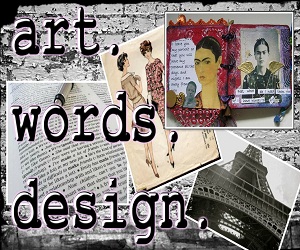
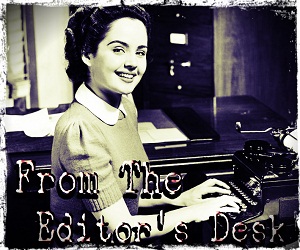
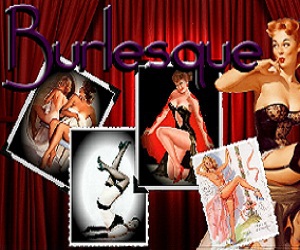



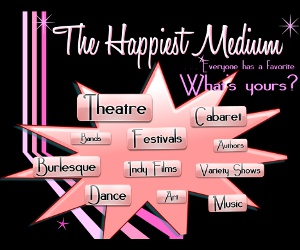
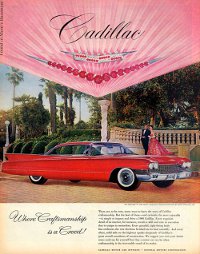
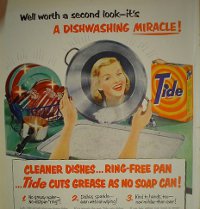
{ 0 comments… add one now }